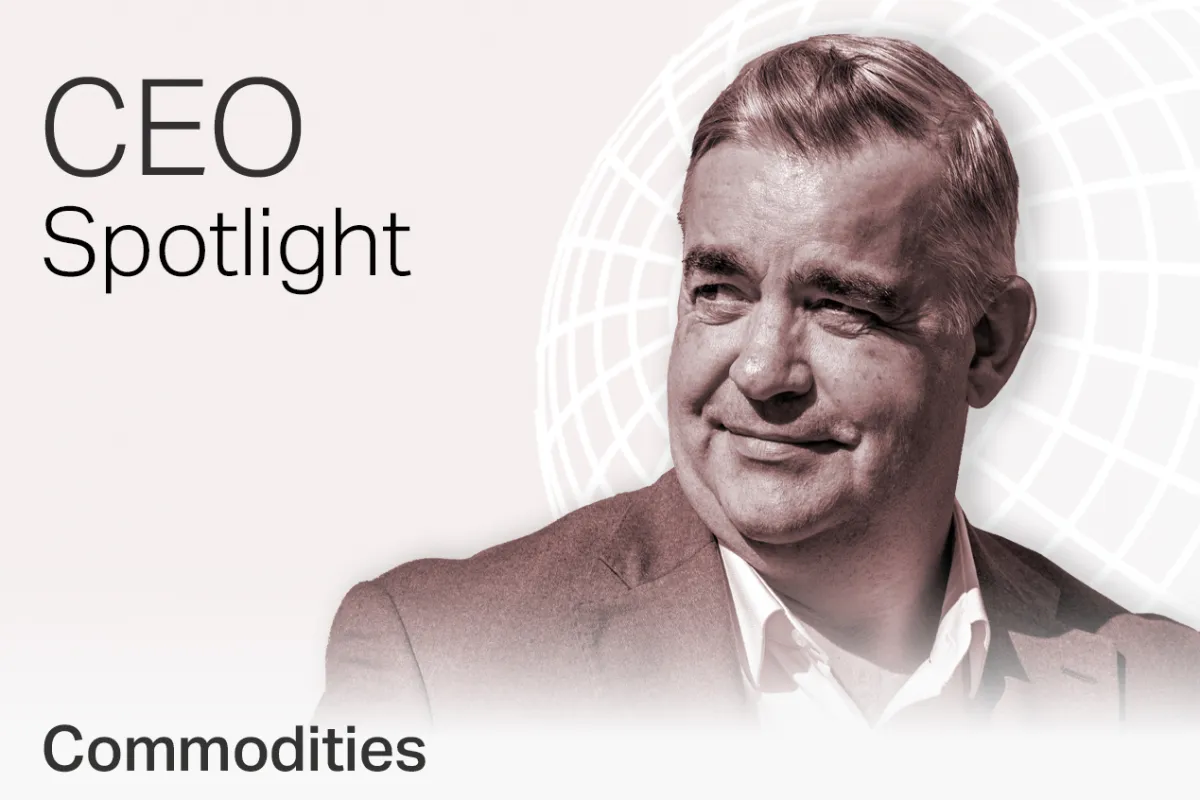
US Consumers Will Pay Price For Tariff Hike, Warns Top Swiss Trader
-
More from this auth
Global trading heavyweights Glencore, Gunvor, Trafigura, Cargill and Louis Dreyfus have important operations in Switzerland. But over the past decade Geneva as an international trading hub has increasingly been challenged by rivals such as Dubai or Singapore that offer tax breaks and looser regulations, among other perks.
Sébastien Landerretche spoke to Swissinfo at the Hotel President Wilson in Geneva, on the sidelines of the world's largest commodities shipping conference, Geneva DryExternal link . He discussed how Switzerland could remain competitive and the efforts made to ensure greater transparency in the sector.
Landerretche is global head of ocean freight at Louis Dreyfus. In January 2024 he was elected president of SUISSENÉGOCE, the umbrella association that defends the interests of Swiss-based commodities trading companies.
Swissinfo: As president of SUISSENÉGOCE, what are your priorities?
Sébastien Landerretche: My priority is to ensure that Switzerland remains attractive for trading companies. For many years, the country enjoyed a historic advantage, but other economic hubs have made significant progress. Singapore, for instance, is pursuing a very proactive policy to attract trading companies, as is the United Arab Emirates. London has kept its cutting-edge expertise, particularly in finance, while Amsterdam has strengthened its position, especially since Brexit, above all in energy trading.
Switzerland, and Geneva in particular, can no longer rest on its laurels. We must constantly make sure that our framework conditions remain favourable. Fortunately, our country still has strong assets: closeness to the political authorities, efficient infrastructure, a diverse network of businesses in our sector and recognised expertise, particularly in trade finance.
Low corporate tax rates are one thing; in the future, low personal rates will become more important to attract top talent, reckons Landerretche. Vera Leysinger / Swissinfo
Swissinfo: It is often said that the Swiss trading cluster, particularly in Geneva, has developed without direct state intervention.
S.L.: The success of trading in Switzerland is built on a subtle balance between economic freedom and a fitting regulatory framework. This is the result neither of centralised state planning nor proactive industrial policy but of an ecosystem capable of attracting companies that are looking for a neutral, reliable and competitive environment. The state's contribution is precisely in ensuring the quality of these conditions, not least through a skilled workforce. The Master of Science in Commodity TradingExternal link , offered by the University of Geneva in partnership with SUISSENÉGOCE, plays a key role here.
Swissinfo : Singapore relies in particular on low corporate taxation to attract companies. How can Switzerland remain competitive?
S.L.: Corporate taxation is certainly an important factor, but it's not the only one. Singapore offers a coherent package of incentives, both fiscal and non-fiscal, including support for innovation and ease of establishment. Furthermore, the entry into force of the new OECD rules, adopted by Switzerland, imposing a minimum tax rate of 15% for large multinationals, reduces the tax advantage enjoyed by companies.
Against this backdrop, it is imperative that the Swiss federal government and cantons lower personal income taxes. To remain competitive, we need to be able to attract the best international talent. If an employee's purchasing power is significantly higher abroad, he or she will think twice before coming to live in Switzerland, especially in the cantons around Lake Geneva, where personal taxation is higher. And if the day comes when our companies are no longer able to attract this talent, then they will move to places where they can find it.
Swissinfo : Is the Swiss trading sector mainly based on a few very large companies?
S.L.: Far from it! Around 80% of SUISSENÉGOCE members are SMEs [small and medium-sized enterprises]. These companies are often highly specialised and play a key role in the supply chain.
SWI swissinfo / Kai Reusser
Swissinfo : Banks specialising in trade finance, such as ING Bank and BCGE (Banque Cantonale de Genève), are the mainstays of the sector. However, their influence is waning in Geneva, partly because of the high operating costs in Switzerland and the fact that the Swiss market can be served from European Union countries. Does this pose a threat to Geneva's role in trading?
S.L.: Yes, because banks specialising in trade finance are the lifeblood of the sector. In Switzerland their know-how remains intact, even if their numbers have dwindled, which is regrettable, as their local presence is invaluable. That said, given Switzerland's stringent regulatory requirements for capital and liquidity, some banks may prefer to operate from abroad while working with companies based in Switzerland.
Swissinfo: Is the Swiss trading sector growing or shrinking overall?
S.L.: Detailed statistics are still needed on the issue, but the Federal Statistical Office is working on this with results expected by late 2027. We can nonetheless say that this sector has remained stable overall, with some structural adjustments. Some low value-added activities [editor's note: for example, back-office operations] have left Switzerland, but the decision-makers are still here.
Read more: Dubai has positioned itself as a key commodities hub, but not necessarily at the expense of Switzerland :
More More UAE vs. Switzerland: rivalry or synergy in commodity trade?This content was published on Mar 24, 2025 Dubai is rising as a commodities trading hub. What does it mean for Switzerland?
Read more: UAE vs. Switzerland: rivalry or synergy in commodity trade
Legal Disclaimer:
MENAFN provides the
information “as is” without warranty of any kind. We do not accept
any responsibility or liability for the accuracy, content, images,
videos, licenses, completeness, legality, or reliability of the information
contained in this article. If you have any complaints or copyright
issues related to this article, kindly contact the provider above.

















Comments
No comment